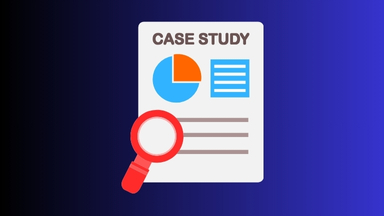Embracing the Future: Progressive Web Apps (PWAs) in 2024
As we step into 2024, the landscape of web development is continually evolving, with Progressive Web Apps (PWAs) leading the charge. PWAs are redefining the user experience on the web, blurring the lines between web and mobile applications. This article delves into why PWAs are becoming increasingly pivotal and how they are shaping the future of web development.
Exploring Digital Innovations: Thriving in the 2024 Marketing Tech Sphere
What are Progressive Web Apps?

Progressive Web Apps are a hybrid of regular web pages and mobile applications. This new model combines features offered by most modern browsers with the benefits of mobile experience. They are websites that feel and behave like an app, offering functionalities such as offline accessibility, push notifications, and fast load times.
Now That's Interesting
In 2024, the digital marketing landscape is revolutionized by AI's ability to predict customer behavior in real-time. This technology enables marketing strategies to instantly adapt to each customer's unique needs, ensuring highly tailored content delivery. Such proactive personalization by AI is not just an incremental change but a fundamental reshaping of digital marketing dynamics.
The Rise of PWAs in 2024:

In 2024, PWAs have gained significant traction due to their ability to provide an app-like experience without the need for downloading a traditional app. With the increasing use of mobile devices for internet access, PWAs offer a seamless, efficient, and accessible user experience.
Key Benefits of PWAs:

Improved Performance
PWAs load faster than traditional web applications, enhancing user engagement and retention.
Offline Accessibility
Service workers enable PWAs to function offline or on low-quality networks.
No App Store Dependence
PWAs don’t require app store submissions, making them easier to publish and maintain.
Enhanced User Engagement
Features like push notifications help in maintaining user engagement and increasing re-visitation.
PWA and its Impact on SEO:

PWAs not only enhance user experience but also positively impact search engine optimization (SEO). Faster load times, responsiveness, and offline accessibility contribute to better search rankings.
Now That's Scary
Advancements in AI and machine learning offer substantial benefits but also raise ethical concerns, particularly regarding privacy. The same technology enabling personalized experiences can also invade privacy if not handled carefully. Balancing personalization with privacy is vital to avoid misuse of personal data, making ethical considerations as important as the technology itself.
The Challenges Ahead:

Despite their advantages, PWAs face challenges in terms of browser compatibility and limited access to certain device features compared to native apps. However, ongoing developments in web standards are gradually overcoming these hurdles.
Case Studies: Successful Implementation of PWAs

Several leading companies have successfully implemented PWAs, reporting increased user engagement and higher conversion rates. For instance, [Insert Case Study], demonstrated a significant increase in session duration and reduced bounce rates after transitioning to a PWA.
Conclusion
PWAs are undoubtedly a significant milestone in the web development landscape, offering a user-friendly, efficient, and accessible web experience. As we continue in 2024, PWAs are not just a trend but a fundamental shift in how we perceive and interact with web applications. For businesses and developers alike, embracing PWAs means staying ahead in the digital arena, providing enhanced experiences, and capitalizing on the myriad of benefits they offer.
PWA Usage Statistics
Stay Ahead in the Digital Marketing Game!
Join us to explore more insights and strategies for successful digital marketing.
Sign Up for More Insights